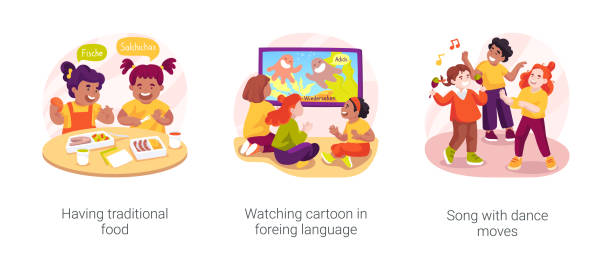In today’s world, addictions are a pressing issue that affects individuals and families across all demographics. As children grow, they are increasingly exposed to various influences that can shape their behaviors and choices. One powerful medium that can play a crucial role in guiding children toward healthy decisions is animation. Cartoons, often seen as mere entertainment, can impart essential life lessons and promote positive behaviors that help children avoid substance use as they grow older.
The Influence of Cartoons on Children
Cartoons have a unique ability to engage young audiences through vibrant visuals, relatable characters, and entertaining storylines. This engagement can be harnessed to communicate important messages about the dangers of substance use. Research indicates that children are particularly receptive to the lessons presented in animated formats. According to a study by the American Academy of Pediatrics, children aged 2 to 5 can understand complex concepts when they are presented in a story-driven format, such as cartoons. This makes animated shows an ideal platform for addressing serious topics like drug addiction.
Positive Role Models in Animation
Many cartoons feature characters that model healthy behaviors and make positive choices, providing children with relatable figures to look up to. For instance, the popular animated series “Dora the Explorer” emphasises problem-solving, teamwork, and making safe choices. Dora’s adventures often highlight the importance of staying healthy and avoiding dangerous situations, subtly steering children away from negative influences.
Another excellent example is “Arthur,” which tackles various social issues, including peer pressure and the importance of making good choices. In episodes where characters face dilemmas, the show provides a framework for discussing these topics in a safe and age-appropriate manner. By presenting these situations in a relatable context, children can learn how to navigate similar challenges in their own lives.
Educational Cartoons Addressing Substance Use
Several educational cartoons specifically address the dangers of substance use and promote healthy lifestyles. “The Magic School Bus,” for example, explores various scientific topics while emphasising the importance of making healthy choices. In episodes that touch on the human body and its functions, the show can introduce concepts related to drug use and its effects on health. By teaching children about their bodies and the consequences of harmful substances, the series instills a sense of awareness and responsibility.
“Peppa Pig” is another cartoon that, while primarily focused on everyday adventures, subtly incorporates lessons about health and well-being. The characters often engage in physical activities, eat healthy foods, and discuss the importance of being safe, which can indirectly influence children to make better choices as they grow older.
Statistics Highlighting the Importance of Early Education
The impact of early education on substance use prevention cannot be overstated. According to the National Institute on Drug Abuse, children who receive education about the risks of drug use at an early age are 50% less likely to engage in substance use during adolescence. This statistic underscores the critical role that cartoons can play in delivering these messages effectively. By embedding these lessons in entertaining narratives, cartoons can reach children in a way that is both enjoyable and impactful.
Engaging Storylines and Relatable Characters
The effectiveness of cartoons in teaching children about substance use lies in their ability to create engaging storylines and relatable characters. When children see characters they admire facing challenges and making positive choices, they are more likely to emulate those behaviours. Shows like “SpongeBob SquarePants” and “Teen Titans Go!” often incorporate themes of friendship, teamwork, and resilience, reinforcing the idea that positive relationships can help individuals resist negative influences.
Moreover, cartoons often use humour and creativity to address serious topics, making them more accessible to young viewers. For instance, “My Little Pony: Friendship Is Magic” emphasises the importance of friendship and making good choices, often portraying scenarios where characters must decide between right and wrong. These entertaining narratives not only captivate children but also teach them valuable life lessons.
As children navigate the complexities of growing up, the influence of cartoons can be a powerful tool in helping them avoid substance use in the future. By providing relatable characters, engaging storylines, and valuable life lessons, animated shows can educate young viewers about the dangers of drugs and promote healthy choices. With statistics supporting the effectiveness of early education in preventing substance use, it is clear that cartoons can serve as a vital resource in shaping the attitudes and behaviours of the next generation. By harnessing the power of animation, we can equip children with the knowledge and skills they need to make positive choices throughout their lives.






